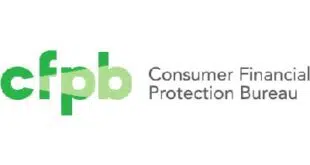The rising prominence of open banking, particularly in Europe and the United States, poses a “growing threat to the dominance of cards within e-commerce,” says a report released early Monday by the United Kingdom-based firm Juniper Research. The report comes against a backdrop in which e-commerce transactions are growing fast in response to the pandemic and as fintechs and banks seek out alternatives to credit and debit cards for account-to-account payment networking.
Demand for open banking is such that these networks will handle more than $116 billion annually in global transactions by 2026, up from less than $4 billion this year, Juniper projects in its report, “Open Banking: Key Opportunities, Vendor Strategies & Market Forecasts 2021-2026.” Much of the growth will stem from rising awareness of the option among financial-industry players, along with accelerated growth in Europe owing to new application programming interfaces developed in response to the requirements of the Second Payment Services Directive (PSD2), Juniper says.
Open-banking connections allow payments providers and other financial-services players to verify the ownership of checking and other financial accounts, as well as the level of funding in those accounts. The fast-developing technology has attracted a wide range of fintechs and other non-banks looking to facilitate payments.

This development in turn has prompted the major card networks to seek out open-banking capabilities to support account-to-account transfers. Visa Inc. in June agreed to pay $2.15 billion for Tink AB, a Stockholm-based company with links to 3,400 financial institutions throughout Europe. Earlier, Visa was frustrated in its effort to acquire Plaid Inc., a major U.S. provider, by objections from the U.S. Department of Justice that the deal would hand Visa too much control over the debit business. Rival Mastercard Inc., meanwhile, acquired another U.S. player, Finicity Corp., for $825 million. Later, it agreed to buy Aiia, a Copenhagen-based provider, and hopes to close on the deal by year’s end.
These acquisitions are clearly critical as the networks develop account-to-account, or A2A, capabilities. “We see [A2A] as an opportunity, a way to get volumes we’ve not historically been involved with,” Mastercard chief executive Michael Miebach said during an earnings call last week. Years before these deals, Mastercard had laid the groundwork for its nascent A2A business in Europe with its acquisitions of the software firm Vocalink and Transfast Remittance LLC, a cross-border payments specialist.
Juniper’s report concedes that card-based payments remain “well-established,” but notes that so-called permissioned account access, which open-banking networks facilitate via their APIs, can cut the risk of fraud substantially.
For the foreseeable future, the onset of PSD2 regulation gives open-banking a head start in Europe, where three-quarters of payments based on this method will occur in 2026, Juniper projects. In the U.S. market, “[r]ecent governmental support … will stimulate the growth of open banking, and the market will require payments players to develop new capabilities quickly to capitalize,” Juniper notes. “As such, acquisitions and partnerships will intensify.”





